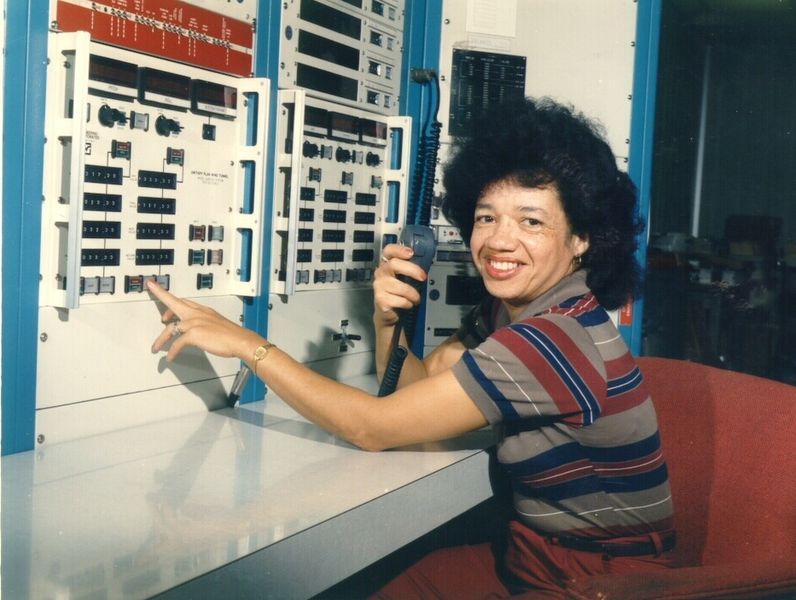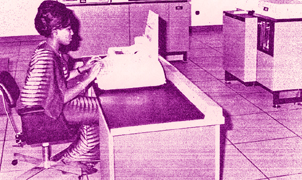Using insights from the three articles that you read for last class (Huws, Balabanian, and Latour), find a current news article (no more than 3 years old) that relates in some way to an idea from the readings you’d like to discuss in class on Jan. 26. Write a short essay–no more than 500 words–and post it as a comment on this post. In it, explain how it relates to one or more of the theories we talked about in class and think about a discussion question you’d like to pose to your classmates.




What will happen when jobs typically occupied by humans are performed by machines? I have selected an article from Wired magazine discussing Uber’s foray into self driving vehicles and efforts made by lawmakers to encourage and limit them. Articles by Huws, Balabanian, and Latour all bring up the concept of work and machines or automation.
I found reading the article and considering how Balabanian discussed the non-neutrality of technology interesting. Since Uber’s attitude when dealing with lawmakers is/was fairly cavalier, I think that one cannot help but wonder whether this impacts the development of these automated vehicles. I think that many people might consider an automated vehicle to be free of issues like road rage or distracted driving but Balabanian argues that technology cannot be considered inherently neutral.
The article discusses how some people / policymakers see the benefits of self driving vehicles; safer roads being one of the foremost advantages over cars driven by human drivers. The design of the vehicle is dependent on humans, though, and shaped by laws that are also written by humans, which is easily forgotten in the excitement that new technology often brings. Balabanian warns us in his piece that “Technology is not a neutral, passive tool devoid of values” and that products primarily serve corporate instead of social interests.
As a discussion, is it possible to create an automated vehicle that doesn’t contain the attitudes or beliefs of its developer? Can an automated car be safer than the people who create the car and laws it (must) obey?
Article: https://www.wired.com/2016/12/legal-loophole-lets-uber-test-self-driving-cars-california/
Balabanian believes technology is not neutral. He believes technology is what pushes us along and influences society as whole. In his mind, technology is for good or for evil and the creator’s intentions for their creation always has an agenda. These fears of technology being in the driver’s seat and the purposes of the technology are also feared in terms of AI and robots. The Members of the European Parliament have called for a comprehensive set of rules of how humans will interact with AI and robots. It wants designers to put in a kill switch on all robots and would give robots a legal status as “electronic persons.” The article states,” The report suggests that robots, bot, androids, and other manifestations of AI are poised to ‘unleash a new industrial revolution, which is likely to leave no stratum of society untouched.” This quote shows how many people believe that a new age of robots is upon us and how this technology is pushing us forwards and will be influencing us greatly. So, the MEP wants to put rules in place to make sure the influence this tech will have on us will not be a disastrous one. They share Balabanian’s fear of technology being in the driver’s seat and that technology has control on how we live and how we progress.
The MEP may also share Balabanian’s fear of the purpose of technology and whether this technology will come around and turn against them. The article also states, “The report acknowledges that there is a possibility that within the space of a few decades AI could surpass human intellectual capacity. This could, if not properly prepared for, ‘pose a challenge to humanity’s capacity to control its own creation and, consequently, perhaps also to its capacity to be in charge of its own destiny and to ensure the survival of the species.” With the emergence of this new tech, there is a likely possibility that this tech will be used to create a creation with immoral instructions and this could spell trouble for the whole race. Many pieces of technology in own human history have had malevolent intentions in mind and AI and robots could be made with the same intentions. This spells trouble for our own race, because how the article pointed it out, robots will overpower us intellectually and will think better than we can. This whole MEP vote is most likely out of fear of this new technology and they want to control it to try to stop what Balabanian fears. They want to make sure that this tech will not be used to create evil tech and everything will be regulated. I believe that all these regulations are useful and necessary but everything that Balabanian hopes isn’t true about technology will eventually happen, no matter how much we resist it. Technology will always be pushing us and influencing us and technology will always find a way to be have both good and bad intentions.
Sources
http://www.bbc.com/news/technology-38583360
N. Balabanian, “On The Presumed Neutrality of Technology”
In Greg Satell’s article “The Inevitable Collision of Technology and Politics” on Forbes, he highlights some of the major shifts in Silicon Valley’s goals. The major focus used to be on the smaller man/woman. Creating an easier life through technology and giving these people the opportunity to do more with the time they have. But once the user centered design movement had run its course, the billionaires of Silicon Valley had to come up with a new way to make a difference. Cognitive computing and social network theory are the new up and coming areas of research today—trying to predict how information spreads and how technology can aide the process. However, just like in “On the Presumed Neutrality of Technology,” we can see that it is in no way impartial.
The geniuses behind many of our most popular tech companies are described by author George Packer as having an “instinct for libertarianism.” If this underlying mantra gets in the way of the political movement they are trying to enact, we could have a severe conflict of interest. One example of this is already visible in San Fransisco, the biggest technology city in the country. Despite having these world-changing startups and “garage-founded” corporations, there is still an obvious line in the sand. According to George Gopman (tech entrepreneur) cited in the attached article, “…there is an area of town for degenerates and an area of town for the working class…” They may know how to solve our issues with efficiency and connectivity, but clearly not economic or social issues. Facebook never stopped any wars, Twitter never prevented terrorism, yet they strive to be companies that are relied on for things like that. It’s almost becoming a status symbol for some of them when they’re referenced in Fox news or other political tabloid rather than an achievement. This is one point that Balabanian did not cover in his work—that some people wear technology as a mask, hiding their true colors behind ones and zeroes they created.
The rise of Donald Trump could have easily been orchestrated by twitter, as shown through their disagreement of banning him despite witch-hunting and fake news circulating from his account. They know that the words of people spread ten times as fast through their platform, and they use that fact to their advantage. Technology and knowledge have always equaled power, but not nearly to the extent that they do now. Young people with radical ideas (good or bad) can get hundreds of millions of dollars to fund their ideas in places like Silicon Valley or other startup culture hubs, and their technology can grow to fit their morals and ideals. Some like Bill Gates or Tim Cook use their money for philanthropy, but others choose to invest it in the future of the world, strategically placing funding in the places they want to grow. This power, if gone unchecked, could grow out of control. If it stays the same way, we will surely pay the price. So what can we do to create a system of checks and balances for this new power?
The three articles for class “Labor in the Global Digital Economy, “Where are the Missing Masses and “On The Presumed Neutrality of Technology had an excellent insight on scenarios after post information revolution. All the authors compliment but mostly contradicts each other on significance that technology plays in our society.
Huws start her article by describing a background of technology and how it swiftly integrated in our work place and how destroyed a lot of jobs but also created a lot more. But she argues that the jobs technology created are specialization, and the job end up defining the status of the person. She also says that due to this concentration and limitation of a person to his or her specific field, the person gets limited and end up with the social identity that he cannot escape from.
Latour in his article unlike the other two authors is optimistic. He is not a technological determinist. His whole article is filled with sarcastic compliments. However, he realizes that technology is part of society and here to stay, so according to him the best way to progress is to embrace it openly and try to navigate it instead of getting navigated by technology.
Balabanian who by profession is engineer, ironically argues pessimistically about the growth and control of technology. Being engineer does give him an insight of technological revolution and its effect of our daily life, but he defies Latour perception and continuously describe technology as not a presumed neutrality like the other authors think. He take a step forward from Huws perspective and argues that technology not only limit a person to their field, but also assign them the morality and in some way hinders there ideology.
All authors present different logical conclusion about their arguments, but they all agree that technology does exert a strong thing in our society and day to day life. The concentration of technological impact is continuously growing and it will define our molarity, but they differ how much would that be.
The article written by Nick Bilton, describes the accumulative description of all the authors arguments and conclusion. He just like Balabanian has an insight in technology, since he has been writing tech articles for 14 years now. He starts off with Balbanian arguments that technology does define our morality up to some extent and has a wide control on over social-political thinking. He then slides to Latour argument that technology is better than bad, as it provides us a sense of security. In the end he resemble Huws argument that technology does end up defining who we are and what our position is in society.
Article:
https://www.nytimes.com/2016/03/31/fashion/social-media-technology.html?_r=0